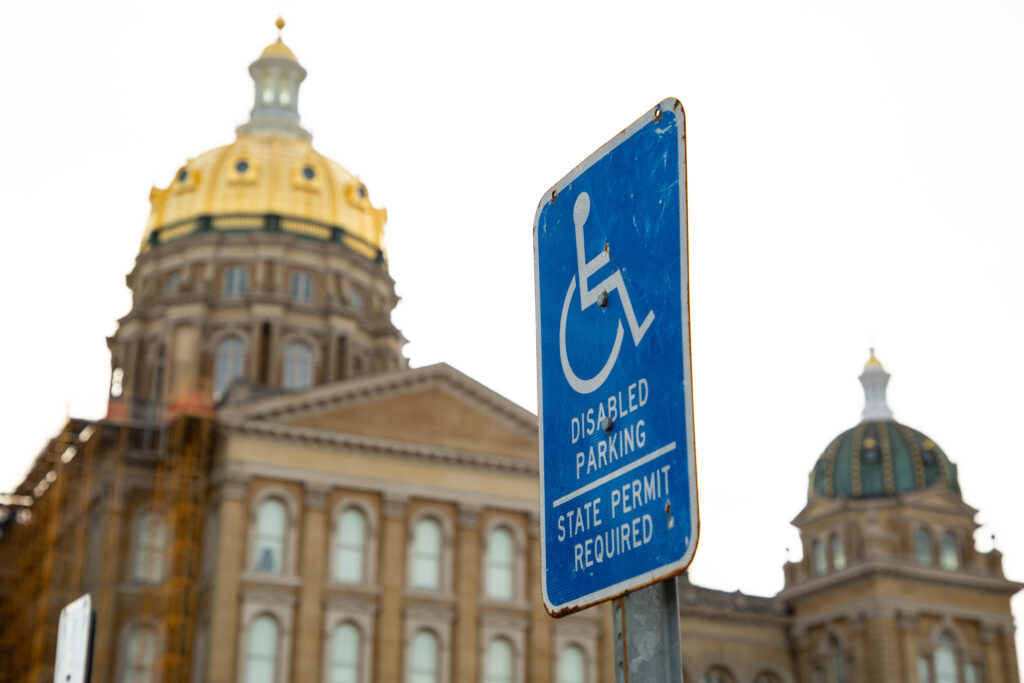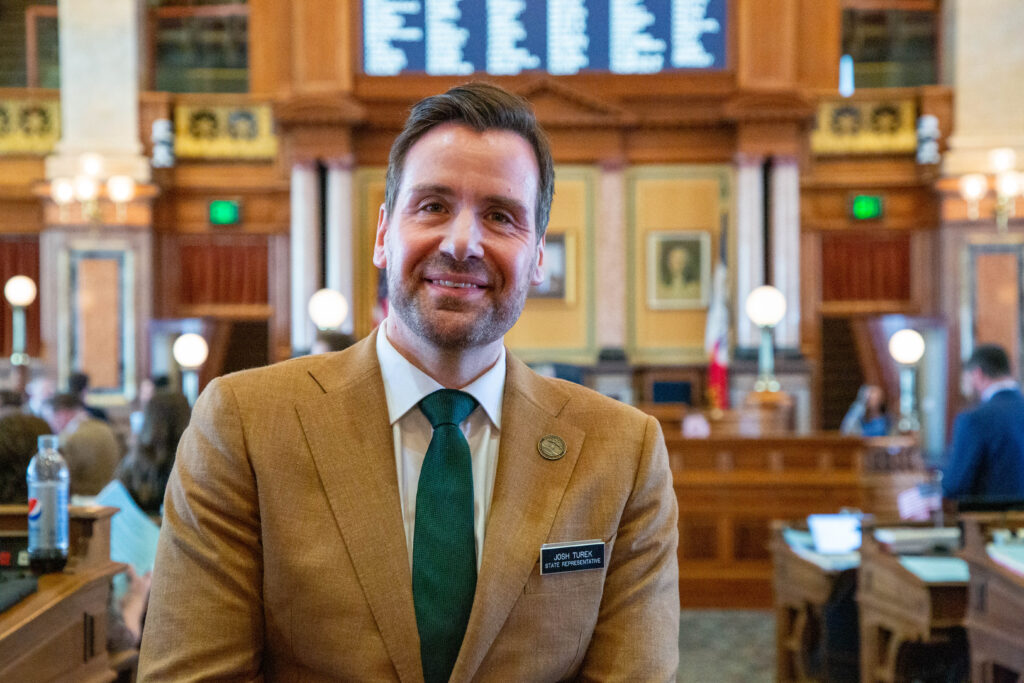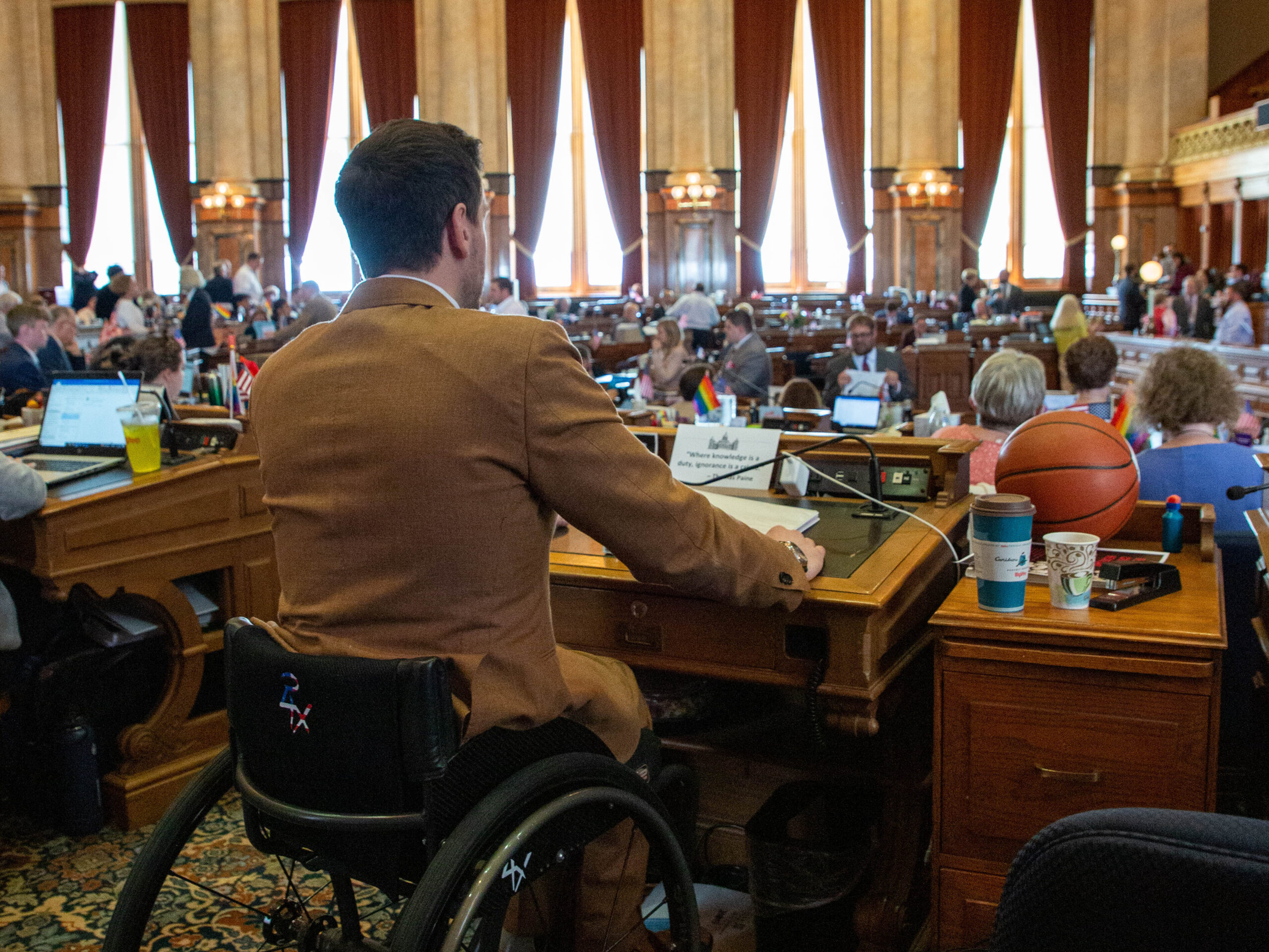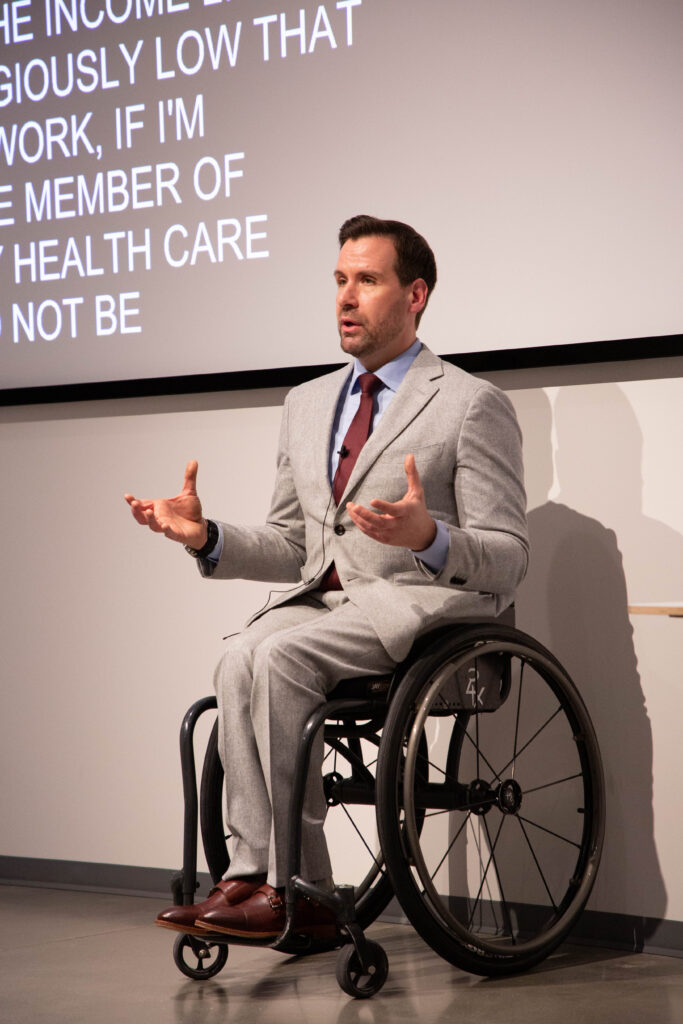
The 118th United States Congress has been heralded as the most diverse national legislature in the history of our country. Its membership includes the first ever Generation Z representative, and the number of women in its ranks is at an all-time high. Recent data from Pew Research Center shows that this is the most racially and ethnically diverse Congress in history. That same study shows that, at 13, the number of openly LGBTQ+ members has never been higher. Yet even with all these headline-making, record-setting gains in diversity, Congress continues to lag far behind the actual demographics of the U.S. population. Unsurprisingly, minorities are consistently underrepresented.
Perhaps no minority group feels that underrepresentation more acutely than the disability community. Rutgers University researchers estimate 10.3% of elected officials in the U.S. have disabilities. In contrast, as much as 25% of the country’s adult population is disabled. That is a clear gap in representation that leaves almost a quarter of Americans without the means to engage with issues and policies that directly affect them.
“Our system of government impacts every part of our lives. Our disabilities, as lived experience, also impact every part of how we experience society and the world,” said Sarah Blahovec, a disability civic engagement expert. “When disabled politicians are underrepresented in elected office, our lived experience is missing from the conversation and policies and laws may be passed that negatively impact us.”
Blahovec has devoted her career to closing the disability representation gap. Her work has touched almost every aspect of civic engagement from advocating for voting rights and accessibility within the disability community to supporting disabled candidates as they run for office. She has seen firsthand how this representation gap has been created by and sustained by a multitude of obstacles.
“Disabled people face both access barriers and prejudicial barriers when running for elected office,” she explained. “Systemic ableism means that our society still is widely inaccessible. We’ve seen this play out in the political arena in so many ways. For example, Chris Hinds in Colorado had to crawl up on stage and have his wheelchair lifted up because the stage was inaccessible, and his access needs weren’t considered ahead of time during a political forum.”
That example isn’t an isolated event.

Accessibility Barriers on the Campaign Trail
In both the literal and figurative sense, the world of politics is often inaccessible for those with physical disabilities. Rep. Josh Turek, a Paralympic gold medalist and disability advocate who was recently elected to the Iowa Legislature has personally experienced that accessibility barrier. In fact, it’s what pushed him to run for office.
“They brought me up to the Capitol to recognize me for winning my two gold medals, and as I’m there, I realize the Capitol’s not even accessible,” he said. “We are 30 years post-ADA in the state of Tom Harkin, the state that inspired the American Disabilities Act, and the Iowa Capitol isn’t even accessible. There’s not even a ramp. There’s not even a way for me to get down to the well. That was the moment that I said, ‘All right, I’m doing it. I’m gonna run.’”
For Turek, that experience was the beginning of a long journey to a seat in the statehouse. His campaign was riddled with obstacles, but he’s the first to say that he didn’t let those slow him down. Turek dedicated himself to meeting the people in his district by knocking doors. At the end of his campaign, he had knocked on upwards of 14,000 doors in his hometown of Council Bluffs, Iowa, a city known for its steep hills and streets. Almost every house he approached while campaigning had a physical accessibility barrier.
“Many of these houses have 30 or 40 stairs,” he explained. “The very first question I would get would not be, ‘What’s your political affiliation?’ The first question I would always get is, ‘How in the world did you get up here?’ And I would say, ‘I crawled up here, and I crawled my wheelchair up here.’ What I found was, regardless of where they sat politically, they were willing to give me five or six minutes of their time knowing that I had made that enormous effort to crawl up there, just to spend time with them.”
Turek’s tenacity won him a seat in the Iowa Legislature by a margin of just six votes. He is currently serving as the first permanently disabled member of the Iowa House. The fact that it took 185 years for a disabled candidate to be elected to Iowa’s Legislature may seem shocking, but given the systemic barriers the disability community faces, it’s clear the path to political participation isn’t easy in a way that goes beyond physical barriers.

Societal Prejudice and Bias
Outside of accessibility barriers, many candidates face prejudice and questions of competency stemming from their disabilities, especially those with less visible, mental disabilities.
“Ableist prejudice means that voters view many disabled candidates as less electable. We do have some research on that, showing that voters viewed disabled candidates across the board as less electable,” said Blahovec. “We’ve seen this play out in the political arena as well. The discourse around John Fetterman needing automatic captioning for a debate brought this ableism to mainstream attention. That was a really significant example, but some disabled candidates have reported to me that they have experienced ableism and skepticism from voters who view them as less capable due to their disability.”
Voters aren’t the only ones who are prejudiced in this way. Ableism is a bias that’s even built into political systems and campaign resources.
“Several years back, there was a campaign training program that, when asked how a disabled person could participate, said that disabled people could volunteer on a campaign,” explained Blahovec. “They didn’t even consider that disabled people could work as campaign staff or be candidates themselves until the disability community reached out to them. Society as a whole still views disabled people as less capable.”
That societal prejudice also translates into a lack of data and research on disabled candidates, campaigns and elected officials which, in turn, makes it more difficult to support them.
“When I started working on this issue in 2017, there was almost no information about running for office or serving in office with a disability,” said Blahovec. “There still is a lack of data. I think that this is due to systemic ableism and how we as a society view disability.”
Taking Action to Close the Gap
While dismantling the structural components of an ableist society may seem daunting, one easy-to-identify area for improvement is eliminating barriers to campaign training. Much of Blahovec’s work is closely related to this topic. She co-created a program called Elevate: Campaign Training for People with Disabilities during her time at the National Council on Independent Living. The program not only made campaign training more accessible, but was created by and led by disabled people, something that doesn’t happen often in politics. Although this campaign was a step in the right direction, there is still much work that needs to be done.
“Beyond training, there are so many other needs. We need more research to understand the representation gap, especially research that takes into account different demographic information such as race, gender and sexuality,” said Blahovec. “We need parties to recruit and support disabled candidates, not to see them as less electable.”
In addition to these areas that are more obviously focused on campaigns and candidates, Blahovec pointed out there are many economic obstacles that could be removed to help those with disabilities run for office.
“We need to dismantle economic barriers to elected office. Currently, people who are on Medicaid, SSI or SSDI cannot run for office without risking the loss of their benefits,” she said. “We need to increase the asset limits for people who receive public benefits so that they can serve in elected office without losing those benefits, as many elected offices have small salaries (sometimes hundreds to thousands of dollars) that would go above the asset limit but are not livable wages.”
In spite of the enormous amount of work that needs to be done to close this representation gap, Turek feels hopeful that his work can make a difference and propel others to take action.
“It gives me enormous pride every single time I see a kid up here or when veterans come,” said Turek. “Seeing them come into the chamber, and they see that ramp, they see me, and they say, there is no glass ceiling for me. I can do whatever I want in my life. You can be the president of the United States, you can be the governor of Iowa. That’s meaningful, and I think that the more individuals like myself that we get engaged, that we get involved in the process, the more we’re going to see this community come out and be supportive. I hope that I inspire a whole lot more individuals to get involved.”

